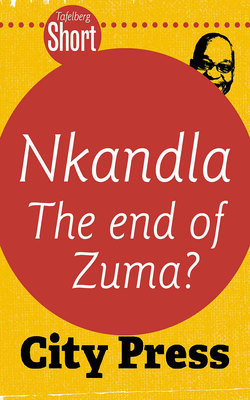Читать книгу Tafelberg Short: Nkandla - The end of Zuma? - City Press - Страница 4
На сайте Литреса книга снята с продажи.
Foreword
ОглавлениеThere are words that become shorthand and morph into the popular culture, their understanding much deeper and more layered than the length of them. So, “arms deal” is one. The two words are used to deliver an entire set of meanings. This can include the factual: the arms deal was the refitting of the navy, air and defence forces for deeper roles in the world and across the continent after 1994. But the more common meaning describes the corruption that accompanied the deal where arms merchants inducted the new democrats into the ways of patronage and corruption. We bought the wrong armaments at hugely inflated prices as bag-men for politicians walked away with millions.
We are no closer to its truth than we were 10 years ago. And this is, it seems to me, where we will sit in 10 years time when we excavate the path of another word that has come to mean many things. Nkandla.
Factually, the village of Nkandla holds President Jacob Zuma’s private homestead, his umuzi. It is his family home and hearth, where the Zuma clan hails from. But, as I write, Nkandla has come to mean much more. It is shorthand for grand corruption.
President Zuma and his bag-man, Schabir Shaik, are said to have requested a fee of half a million rand a year from arms merchants in the course of the deal. Nkandla is much grander: it has cost the public purse R246-million (and rising), according to the nation’s makhadzi, our matriarch and public protector, Thuli Madonsela. Nkandla yields so many issues for democrats to ponder upon.
The one that occupies my mind most is where we stand now on the role of law in society. If the public protector’s reports are now serially filibustered through the courts by those whom she finds fall short on the standard of public service, it can make a nonsense of the institution. And if the laws that govern the president – I’m thinking here of administrative justice, executive ethics, the various Cabinet standards – are ignored with such insouciance, surely it says we are downgrading the rule of law and its role in society?
Nkandla has also come to symbolise a cross-roads. It is the time we decide whether we want leaders who are circumscribed by law and ultimately by constitutional sovereignty or whether we want leaders who are like kings or chiefs – the sovereign themselves who are largely untouchable.
Ferial Haffajee
